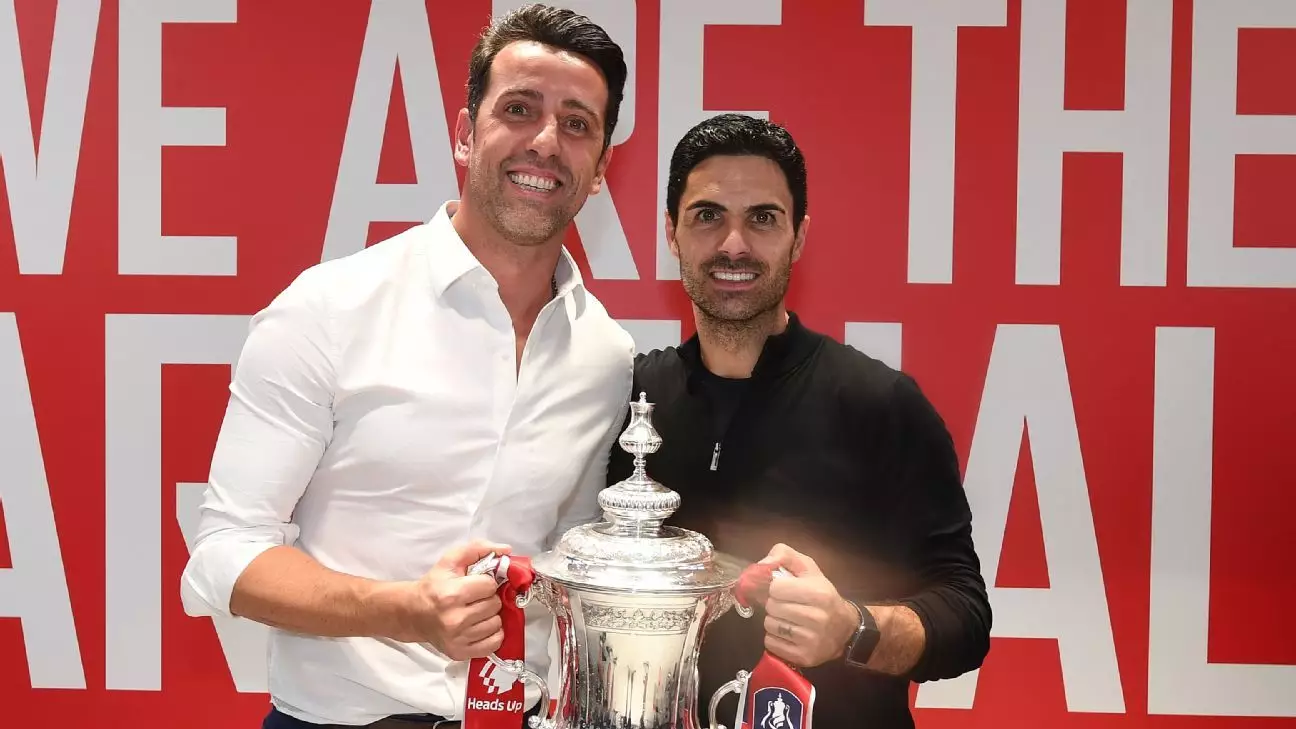The landscape of Arsenal Football Club has been notably shaken following the unexpected departure of Edu Gaspar, the former sporting director. With his exit, the club finds itself at a pivotal moment, questioning how this transition will affect its meshed plans for the upcoming January transfer window. Edu, who was with Arsenal for five years, has chosen to embark on a new path under the ownership of Nottingham Forest, which has left many in the club surprised and searching for stability. As the managing director, Richard Garlick works to find a replacement, interim solutions must be put in place to maintain strategic direction.
In the interim, Jason Ayto has stepped up to assume the role of sporting director. Mikel Arteta, the team’s head coach, has expressed confidence in Ayto’s capabilities and leadership. This unexpected appointment can serve as a marker of resilience for the club; however, it raises questions about long-term vision and continuity. Arteta’s acknowledgment of Ayto’s potential to fill the role permanently sheds light on a collaborative approach where existing staff are empowered amid uncertainty. This can lead to an integration of vision within the recruitment strategy, but it also emphasizes the need for a robust and cohesive plan moving forward.
The strategic direction for Arsenal’s transfer activities will be closely monitored. Arteta indicated a cautious approach towards the January window, emphasizing that it may not be a period of intense activity unless unforeseen circumstances require reinforcements. While this suggests a level of prudence, it also underscores the reality of relying on the existing squad’s health and performance. Arteta’s hope for an improved injury outlook signifies that the team could very well navigate the transfer window without significant upheaval, so long as no immediate needs arise.
The idea of acquiring players may hinge on available opportunities rather than a pre-planned shopping spree. Arteta’s comments hint at a dual approach — one that values the potential of internal talent and the necessity of outside reinforcement. Players like Gabriel Magalhães, returning to training, symbolize resilience and growth from within, suggesting that the focus may be on optimizing current squad members rather than significant spending. If injuries can be managed and the squad remains competitive, Arsenal has the potential to emerge stronger post-window.
Ultimately, the search for a permanent sporting director represents more than just filling a vacancy; it is about establishing a roadmap towards sustained success and excellence. Arteta’s insistence on finding the right individual who can elevate the team and contribute positively to the footballing ethos of the club reflects a desire not only for immediate results but for long-term stability. The coming months could be crucial as Arsenal balances immediate needs within the squad, potential market opportunities, and the impact of transitions in leadership roles. Navigating this intricate web will be essential for the club’s ambitions as it seeks to reclaim its place among the upper echelons of English football.

Leave a Reply